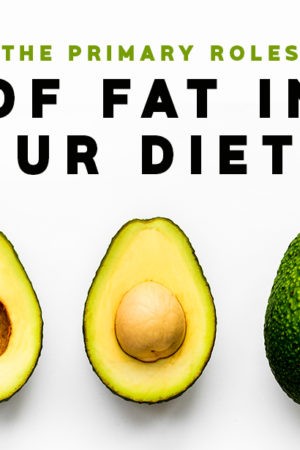Most diets focus on counting calories, and follow the calories in, calories out method of weight loss. One of the most long-standing tenants of dieting culture is the idea of counting calories; if you eat more calories than you burn, you will gain weight, and if you burn more than you take in, you'll lose weight.
The ketogenic diet is a bit different because calorie count is very rarely discussed. While most ketogenic blogs and sites cover macronutrient count in depth, the issue of how many calories you should be eating is often left out of the discussion. So how many calories should you be eating on the ketogenic diet? And should you even be counting calories at all?
What are calories?
You have probably heard the term “calorie” before, but do you actually know what a calorie is? A calorie is simply a unit of measure that we use to calculate the energy value of a food. Foods with higher calorie levels have more “energy” that our body can use, but if we consume high-calorie foods and then do not use the energy in the form of exercise or high-exertion work, we store the excess energy as fat.
How many calories should you be eating a day? The answer depends on a variety of factors, including your age, gender, and activity level. The NIH currently recommends that adult men eat no fewer than 1,500 calories a day to safely lose weight, and women restrict their calories to no less than 1,200.1
Keto and satisfaction
If you allow someone who is on the ketogenic diet to eat as many calories as they want, they will naturally consume fewer calories than those who are eating a normal to high carbohydrate diet. This is because the ketogenic diet replaces the quickly-digested sugar and carbohydrates that make up the average diet with filling and satisfying proteins and fats. Dieters who follow the ketogenic diet were found to feel more full, which led to a decreased number of calories consumed.2
This means that calorie counting is less important on the ketogenic diet than other diets because dieters will naturally consume fewer calories thanks to keto's high level of satiety.
The bottom line
The number of calories that you'll need to consume on a ketogenic diet will depend on your energy levels and gender. However, much more important than counting calories when in ketosis is calculating your macronutrients. Ensuring that you are eating enough fat and protein and keeping your carbohydrate count low enough will help your body shift to fat as your primary source of energy, and will leave you feeling fuller on a lower number of calories when compared with a standard carbo-loaded diet.
If you want to correctly follow the ketogenic diet, you should focus your energy on counting and tracking your carbohydrates, proteins, and fats instead of obsessing over calories. There are even cell phone apps that can help you keep track of how many macros you are eating while on the go!
NUTRITIONAL DISCLAIMER
The content on this website should not be taken as medical advice and you should ALWAYS consult with your doctor before starting any diet or exercise program. We provide nutritional data for our recipes as a courtesy to our readers. We use Total Keto Diet app software to calculate the nutrition and we remove fiber and sugar alcohols, like erythritol, from the total carbohydrate count to get to the net carb count, as they do not affect your blood glucose levels. You should independently calculate nutritional information on your own and not rely on our data. The website or content herein is not intended to cure, prevent, diagnose or treat any disease. This website shall not be liable for adverse reactions or any other outcome resulting from the use of recipes or recommendations on the Website or actions you take as a result. Any action you take is strictly at your own risk.
- What Are Net Carbs? - April 29, 2020
- The Most Comprehensive Keto Alcohol Guide - April 28, 2020
- How to Measure Body Fat Percentage - April 26, 2020































